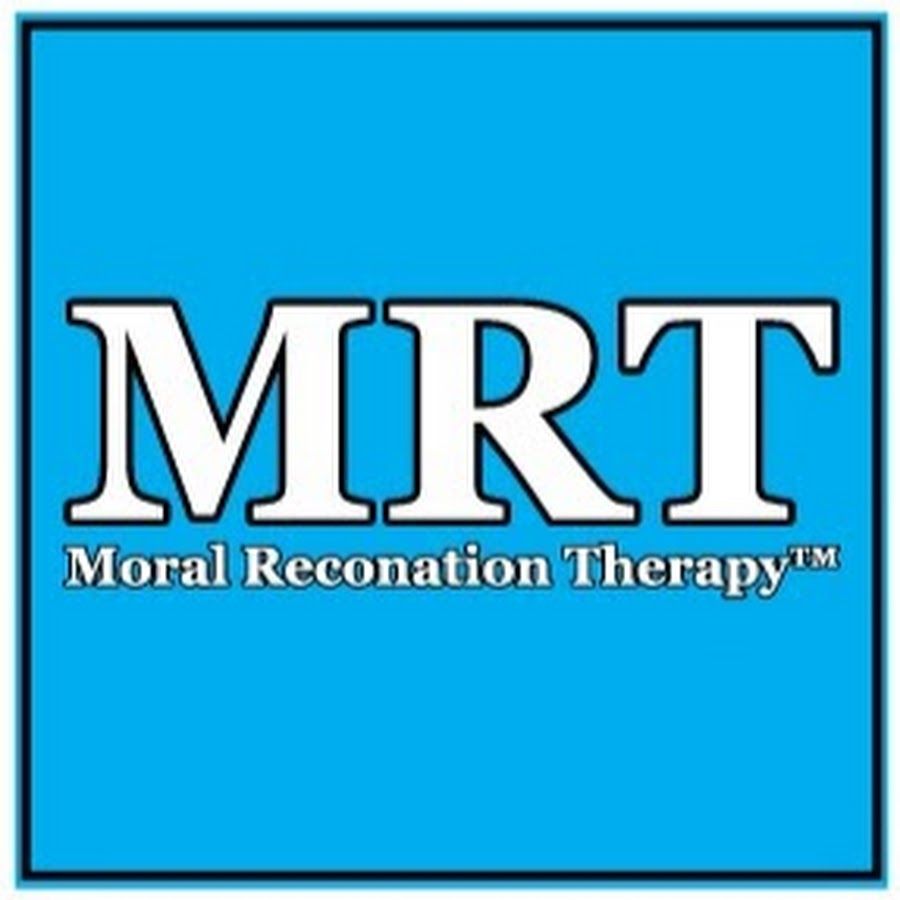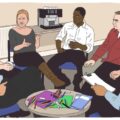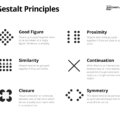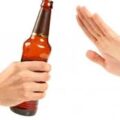What is Moral Reconation Therapy?
Moral Reconation Therapy (MRT) is a type of behavioral therapy aimed at decreasing the likelihood of someone returning to abusing substances or alcohol. It teaches people in the criminal justice system with substance use disorders to focus on the moral aspects of their illness, and the social consequences that may be associated with using drugs or alcohol. MRT started as a behavioral treatment for offender populations to reduce the likelihood of re-offending. It is now a widely accepted cognitive-behavioral approach that treats substance use disorders, trauma, domestic violence, and more.
Similar to Cognitive Behavioral Therapy (CBT), MRT aims to change thought processes and decision-making associated with addiction and criminal behavior. It utilizes a combination of psychological practices to assist with egocentric behaviors and improve moral reasoning and positive identity. Studies suggest it is effective in reducing recidivism after treatment.
MRT is one of the most widely implemented cognitive behavior programs, operational in several countries. MRT seeks to move clients from hedonistic (pleasure vs. pain) reasoning to levels where concern for social rules and others becomes important. Research on MRT has shown that as clients pass steps, moral reasoning increases in adult drug and alcohol as well as juvenile offenders. Controlled evaluations of MRT indicate that program participants have lower recidivism rates than controls.
In 2005, a meta-analysis of nine published outcome studies detailed the effects of MRT on recidivism in parolees and probationers. The studies found MRT cut expected recidivism by nearly two-thirds over a time period of six months to over two years. It is designed specifically for treatment-resistant clients.
How It Works
Should you decide to try out MRT as part of your substance use treatment, you’ll participate in individual and group counseling. There’s also homework to complete and structured group exercises to engage in. In your workbook, you’ll find 16 steps concentrated on seven cornerstone treatment focuses:
- Building of higher pinnacles of moral reasoning
- Lowering self-destructive tendencies and building your frustration tolerance
- Building a healthy concept of self
- Constructing a positive identity
- Reinforcing healthy habits and behaviors
- Assessing your current relationships
- Coming face-to-face with your current behaviors, attitudes, and beliefs
MRT takes the form of group and individual counseling using structured group exercises and prescribed homework assignments. The MRT workbook is structured around 16 objectively defined steps (units) focusing on seven basic treatment issues: confrontation of beliefs, attitudes, and behaviors; assessment of current relationships; reinforcement of positive behavior and habits; positive identity formation; enhancement of self-concept; decrease in hedonism and development of frustration tolerance; and development of higher stages of moral reasoning.
The program has 16 Steps with 12 of these typically completed in 30 group sessions. Clients complete homework for each group prior to coming to a session. In the group, each client presents his or her homework and the facilitator passes the client to the next step or has the client redo the homework based on objective criteria. All MRT groups are open-ended meaning that new clients can enter an ongoing group at any time. Each group session will usually have new clients as well as some finishing the program.
Who is MRT For?
You may wonder if you’re a proper candidate for MRT. Know that it is aimed at specific populations, including:
- Correctional
- Individuals ages 18-55
- Males and females
- Trauma survivors
- Veterans
If you do not have a criminal history, CBT is a similar therapeutic approach that may be ideal for you.
Why MRT Works
- The delivery of MRT is both highly structured and directive, which gets clients engaged and keeps them on track.
- Achievements of each step in the program are clearly understood and client progress can be documented at every stage of the program.
- Clients quickly establish ownership of their participation in the program because the program emphasizes feedback and client reflection.
Each step in the program involves completing specific assignments and reporting on how they completed the step.
- The program is culturally neutral and gender-sensitive.
- Standardized curriculum and facilitator training ensure consistent program delivery and quality assurance.
- Finally, MRT is extremely cost-effective compared to other programs.
Juvenile Drug Courts
Rather than being granted “Evidence-Based Practice Status” from the Substance Abuse and Mental Health Services Administration as it has been with adults, this particular type of therapy is currently classified with a “Promising Practice Status” for juveniles. That said, it has received the “Evidence-Based Practice Status” classification from state departments of human services and state departments of juvenile justice. With that in mind, it’s a good idea to combine MRT with another treatment program backed by evidence that’s aimed specifically at juveniles.
Treatment-Resistant Clients
Something else worth nothing with this therapeutic approach is the fact that it’s aimed at those who have been resistant to similar treatments in the past. This could offer hope if you have enrolled in a number of different treatment or therapy programs to no avail. MRT focuses on treating the whole person morally, socially, and behaviorally. This holistic view could reduce the chance of relapse.
Benefits of MRT
MRT has been proven to have several benefits, a structured evidence review from the US Department of Veterans Affairs examined the evidence base for MRT in civilian samples. Six studies were identified as being rigorous enough to provide interpretable evidence about the impact of MRT and all demonstrated a significant reduction in reoffending in the MRT group.
Aside from reductions in criminal recidivism, MRT has theoretical and empirical associations with improvement in several health-related outcomes such as substance use, mental health, housing, and employment. The theoretical and empirical links between MRT and these health-related outcomes are important, given that these health-related outcomes are risk factors for future recidivism, and improvements in these outcomes have been shown to reduce recidivism. For example, according to the Risk-Need-Responsivity model, substance use and employment problems are robust predictors of criminal recidivism and are key domains measured by valid indices of recidivism risk.






